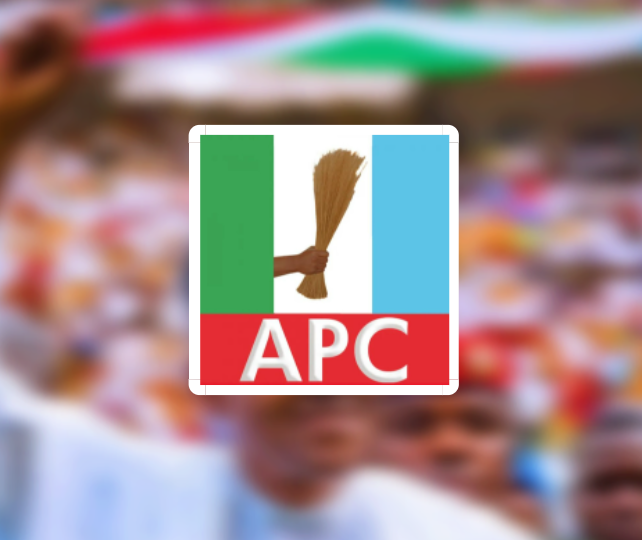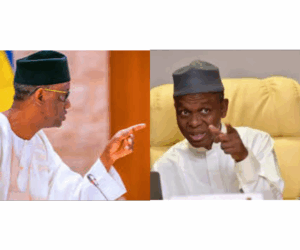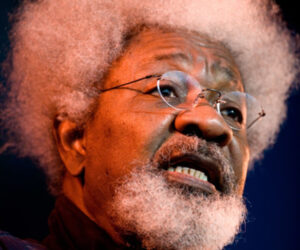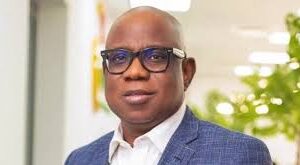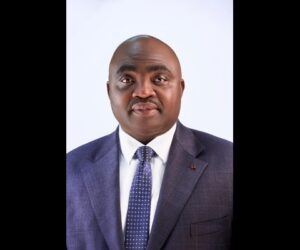Barring any last-minute change, Taraba State Governor Agbu Kefas appears set to become the latest Peoples Democratic Party (PDP) governor to defect to the ruling All Progressives Congress (APC) after Enugu State governor, Peter Mbah on Tuesday made a similar switch.
The move, which has been the subject of intense speculation in recent weeks, gained momentum after Kefas’ close aides reportedly began consultations across the state and a youth group staged a rally in Jalingo on Tuesday, urging him to join the APC.
Sources told Daily Trust that the governor has constituted a committee co-chaired by former Senator Dahiru Bako to engage stakeholders and gauge public opinion ahead of the possible defection.
SPONSOR AD
Senator Bako confirmed during one of the consultations that Kefas would not take such a step without first seeking inputs from the people.
“The governor will not make any political move without hearing from the people and carrying them along. That is why we are meeting with them,” he said.
The APC in the state has already declared readiness to receive the governor, even as some youth groups have continued to stage rallies urging him to join. However, the planned defection is said to have created tension among some APC stakeholders, particularly those with political ambitions ahead of the 2027 elections.
Sources said many party loyalists fear that if the governor moves to the APC with PDP lawmakers and appointees, it could narrow their chances of securing tickets in the next election.
Efforts to reach Kefas’ aides — Emmanuel Bello (Special Adviser on Media and Digital Communications) and Josiah Kente (Special Adviser on Political Matters) — were unsuccessful as of the time of filing this report. But PDP state chairman Alhaji Abubakar Bawa dismissed the speculation, describing the rally as an APC affair. He declined, however, to comment on the committee’s activities.
Kefas’ reported move comes as Enugu State Governor Peter Mbah formally defected to the APC on Tuesday, taking along most PDP political office holders and structures in the state, a development that strengthens APC’s foothold in the South East and weakens the PDP in its otherwise stronghold. Akwa Ibom State governor, Umo Eno and Delta State governor, Sheriff Oborevwori made similar switch earlier in the year.
Like Delta State, Enugu, before this defection had been a stronghold of the PDP with the party producing all its governors since the return to democratic governance in 1999.
Speculation is also rife that Bayelsa Governor Douye Diri and Zamfara Governor Dauda Lawal may follow suit. Although Lawal has publicly denied such plans, sources close to him say the option remains on the table and has not been completely ruled out.
Diri, the only second-term PDP governor among those reportedly eyeing the APC, has been battling for control of the party’s structure in Bayelsa. A faction loyal to FCT Minister Nyesom Wike is said to be laying claim to the structure, a situation that, analysts note, may have made the APC more attractive to him. With virtually all his South South colleagues now in the APC, except the recently reinstated Rivers State Governor Siminalayi Fubara, who is also rumoured to be considering the ruling party, Diri’s options within the PDP appear increasingly narrow.
Before now, Osun State Governor Senator Ademola Adeleke, who faces re-election next year, reportedly made an unsuccessful attempt to defect to the APC. Party insiders in the state said his move was resisted by some stakeholders who feared he planned to dominate the party’s structure if admitted.
Observers believe the wave of defections, particularly from the South South and South East, signals President Bola Ahmed Tinubu’s strategy to consolidate his influence across southern Nigeria ahead of the 2027 elections. This comes amid discontent over his administration’s policies in parts of the country. Currently, the APC controls three of the five South East states — Imo, Ebonyi and now Enugu — while Anambra, governed by the All Progressives Grand Alliance (APGA), has already endorsed Tinubu for re-election in 2027. Abia State, under the Labour Party’s Governor Alex Otti, is also seen as friendly to the Tinubu administration.
In the South South, the APC controls four of six states — Edo, Delta, Cross River and Akwa Ibom — while Bayelsa and Rivers are the only remaining PDP strongholds. In Rivers, Wike, regarded as the state’s political leader, has publicly pledged to deliver the state for Tinubu in 2027, just as he did in 2023.
Across the South West, Tinubu’s home region, the APC governs four of six states — Lagos, Ogun, Ekiti and Ondo. The PDP-led Osun government has already endorsed the president, while Oyo State Governor Seyi Makinde, who backed Tinubu’s 2023 victory, remains in the PDP and is expected to pursue the party’s presidential ticket.
If Governor Kefas ultimately joins the APC, he would become the first opposition governor from the North to do so under Tinubu’s administration. The development could pave the way for similar moves in other northern states, including Kano, where Governor Abba Yusuf of the New Nigeria People’s Party (NNPP) is reportedly weighing his options. Political sources say Yusuf’s decision may depend on whether negotiations to return his mentor, Senator Rabiu Musa Kwankwaso, to the APC eventually succeed.
APC plotting one-party state, govs defecting out of fear, greed – Wabara, ADC
While the PDP has yet to issue an official statement on the latest defection, former Senate President and Chairman of the party’s Board of Trustees (BoT), Senator Adolphus Wabara, said the movement of PDP governors to the APC vindicates his earlier warning that the ruling party is pursuing an agenda to turn Nigeria into a one-party state, an allegation the party and the presidency have denied on several occasions.
He accused the APC of masterminding a calculated campaign to weaken opposition parties.
Reiterating his warning that “a one-party state is a prelude to autocracy and retrogression,” the former Senate President accused the ruling party of “stifling democracy” and eroding the democratic gains achieved under past PDP administrations.
“I saw this coming. I raised the alarm, but was ignored. This is not the democracy we jealously nurtured and guarded — this is a corrupted version,” Wabara said.
He said the defections were not driven by the APC’s ideology but by intimidation and manipulation. “The ruling APC believes in intimidating the opposition into submission. No democracy survives without opposition. APC is killing Nigeria’s democracy by muzzling dissent,” he said.
Wabara also accused the ruling party of refusing to reform the electoral system to ensure credible elections, arguing that some opposition members are defecting out of fear. “This is more of coerced defection than conviction,” he added.
According to him, APC’s record in governance has failed to justify the defections. “Nigerians know there is nothing attractive in the APC. Since grabbing power in 2015, it has presided over Nigeria’s retrogression. Poverty and hardship remain its legacies,” he said.
He noted that PDP governors who had defected were among the better-performing ones but left to protect their political interests. “That a few individuals have left does not mean the people have left us. The PDP remains popular because Nigerians know we built and preserved this democracy,” Wabara stated.
Similarly, the African Democratic Congress (ADC) accused the APC of luring opposition governors to realise its one-party state agenda.
Bolaji Abdullahi, the ADC National Publicity Secretary, told Daily Trust that the ruling party has always harboured such ambitions. “The governors joining them are not doing so out of conviction, but out of fear and greed,” he said.
Abdullahi added that the ADC-led opposition coalition would soon meet to take a common position on the development. “We knew from day one that APC had been working towards turning Nigeria into a one-party state,” he said. “Those joining them are doing so out of desperation and are becoming part of a conspiracy against the Nigerian people.”
Meanwhile, the Obidient Movement has dismissed concerns that the defections threaten its growing influence. Its National Coordinator, Dr Yunusa Tanko, said the development only reinforces Nigerians’ belief that “credibility and empathy have been thrown to the wind.”
“People have been coerced and manipulated, especially those in power. But this only strengthens Nigerians’ resolve to liberate themselves from leaders who do not care about them,” Tanko said.
The National Publicity Secretary of the Abure-led Labour Party faction, Obiora Ifoh, however, said the party was focused on reconciling internal divisions and strengthening its structures ahead of future elections.
In his reaction, a member of the PDP National Executive Committee (NEC), Timothy Osadolor, described Mbah’s defection as “a betrayal of trust,” urging others with similar intentions to leave early so the party can reorganise for 2027.
“Enugu people voted for Mbah because of the PDP platform. They will repay that betrayal in 2027 if he runs on another ticket,” Osadolor said.
He added that Mbah’s 2023 victory was possible only because of the PDP’s strong structure and warned that “there are consequences for every act of betrayal.”
“If he can brazenly violate the trust of the electorate and the Constitution, he should be ready for the people’s verdict. Even if the courts don’t catch up with him, the voters will in 2027,” Osadolor said.
Defections expose cracks in opposition – Shettima, APC
However, Vice President Kashim Shettima has said the wave of defections from opposition parties to the ruling party has exposed the cracks within the opposition camp.
He said while divisions were widening in the ranks of opposition parties, the APC continued to grow stronger through bridges of unity and inclusion.
Representing President Tinubu on Tuesday in Enugu during the grand reception of Governor Mbah, his cabinet, and supporters into the APC, Shettima described their defection as “an extraordinary endorsement of APC’s collective vision.”
“Much has been said about the ongoing wave of defections to our great party,” he said. “What the opposition has failed to do is look into the mirror to ask why the APC remains the preferred destination of Nigeria’s most visionary political actors.
“Their departures are not accidents; they reveal the cracks in the walls they built and the strength of the bridges we have constructed. The APC has, over the years, become a political home where ideas find expression, ambitions find direction, and patriotism finds partnership,” he stated.
The vice president, however, noted that as President Tinubu had repeatedly emphasised, it was not the duty of the ruling party to “fix the house of the opposition.”
“Our task is to offer Nigerians a level playing field and a clear alternative built on integrity, competence, and performance. That we are chosen again and again as the political party of the moment and of the future is because we represent order over chaos, progress over paralysis, and hope over despair,” he added.
Addressing the crowd at Michael Okpara Square, Enugu, Shettima said the APC had nurtured relationships built on trust and inclusiveness, providing a platform for all Nigerians with noble intentions.
APC National Chairman, Prof Nentawe Yilwatda, also welcomed Mbah and his team into the ruling party, saying they had joined “the soul and family of the Progressives.”
He commended the governor for his achievements in office and for choosing to align with the APC’s vision.
“Governor Mbah has revamped the education sector, built roads, and delivered for his people. That is why we welcome him home,” Yilwatda said. “He has a progressive heart, and we are glad to have him in our fold.”
Analysts: Defections reflect weak ideology, threaten opposition survival
Political analysts have said the ongoing wave of defections from opposition parties, particularly the PDP to the ruling APC reflects the absence of ideology and the fragility of Nigeria’s democracy.
The National President of the Nigerian Political Science Association (NPSA), Prof Hassan Saliu, said the development was unsurprising given the nature of the country’s politics.
“Nigerian politics is about stomach infrastructure. When politicians do their calculations and realise there is a bigger cake elsewhere to share, and knowing they lack ideology, they move there,” he said.
Saliu argued that there is no real difference between the PDP and APC, saying political parties in Nigeria have become mere vehicles for gaining power.
“Some governors that have defected to the APC — what is the change in their ideology? There’s no bond between the parties and their members, if they have any at all,” he said.
He noted that many politicians defect to secure their future, avoid investigation, or preserve influence as the PDP struggles with internal crises.
“Some are calculating and want to avoid being tried after office, so joining the ruling party seems the safest thing to do,” he said. “The PDP is facing the implications of its loss of power and doesn’t appear ready to give the APC a run for its money, though anything can happen.”
He added that the PDP’s previous dominance in the South-South and South-East was based on incumbency, not ideology.
“In the Third World, parties are only strong when they are in power. The PDP has been out of power for over ten years now, and politics here is cash and carry,” he said.
Similarly, Prof Gbade Ojo, a political scientist and former Chief of Staff to the Oyo State governor, warned that the ongoing defections could lead to an “unofficial one-party state,” which he said would not bode well for democracy.
“The gale of defections from the PDP and Labour Party to the APC points to the possibility of a one-party state, which is no good for our democracy. The beauty of democracy is to allow a hundred flowers to blossom,” he said.
Ojo added that the defections were not a reflection of APC’s performance but of PDP’s indiscipline and weak leadership.
“If a staunch PDP member like Nyesom Wike is serving as a minister in an APC government, then where is the discipline in PDP?” he asked. “The party appears rudderless.”
He said the PDP’s crisis was self-inflicted, with internal betrayals weakening it ahead of 2027.
“With this gale of defections, PDP is undergoing political extinction and may eventually die if care is not taken,” Ojo said.
On his part, Dr Mohammed Alada, a political scientist at the University of Ilorin, said the trend reflected the self-serving nature of Nigerian politics.
“The nature of Nigerian parties is informed by interest. People join parties to fulfil personal ambitions. Once those interests are threatened, they move elsewhere,” he said.
He argued that the absence of ideology and internal party democracy had weakened Nigeria’s political development.
“We’ve practised democracy for 25 years, but what we’re seeing shows that democracy is not advancing. You can’t have democracy without strong parties, and weak parties mean weak democracy,” he said.
Alada said the opposition’s inability to form a united front ahead of 2027 stemmed from conflicting ambitions.
APC clinches two-thirds majority in Senate, moves four closer in Reps
Meanwhile, the ruling APC has secured a two-thirds majority in the Senate for the first time since 2015 when it assumed power, after Senator Samaila Dahuwa Kaila (Bauchi North) defected from the PDP on Tuesday.
His defection, announced in a letter read by Senate President Godswill Akpabio, raises the APC’s membership in the upper chamber to 73 out of 109 senators. The PDP now has 27 members, Labour Party (LP) 4, the All Progressives Grand Alliance (APGA) 2, the Social Democratic Party (SDP) 2, and the New Nigeria Peoples Party (NNPP) 1.
Senator Kaila cited persistent internal crises within the PDP as the main reason for leaving the opposition. His defection came barely a week after Kelvin Chukwu (Enugu East) also joined the APC from the LP.
Kaila said the PDP’s internal challenges had hindered his ability to serve his constituents effectively.
With a two-thirds majority, analysts say the APC now holds significant influence over key legislative decisions, including the passage of bills and approvals of presidential requests.
However, political analyst Jackson Lekan Ojo warned that the development could weaken democratic checks and balances. “Constitutionally, there’s nothing wrong with it, but democratically it portends danger. The opposition is technically dead in the Senate, and this is not good for our democracy,” he said.
Meanwhile, the APC also gained ground in the House of Representatives after three PDP lawmakers from Kaduna State — Abdulkarim Hussaini Ahmed (Kaduna South), Aliyu Mustapha Abdullahi (Ikara/Kubau), and Sadiq Ango Abdullahi (Sabon Gari) — defected to the ruling party.
Their defection letters, read by Speaker Abbas Tajudeen during plenary, increased the APC’s strength in the Green Chamber to 236 members, just four short of the two-thirds mark of 240. The PDP now has 80 members, LP 22, NNPP 15, APGA 5, ADC 1, SDP 2, and YPP 1.
Speaker Abbas Tajudeen welcomed the defectors, describing their move as “a wise choice” and called the APC “the largest political family in Africa.”
But Minority Leader Kingsley Chinda opposed the development, urging the Speaker to declare the seats vacant in line with Section 68(1)(g) of the 1999 Constitution, which mandates the loss of a seat if a lawmaker defects without evidence of division in his party.
Additional reports by: Saawua Terzungwe, Itodo Daniel Sule, Musa Luka Musa (Abuja), Magaji lsa Hunkuyi (Jalingo), Mumini Abdulkareem (Ilorin) & Mohammed Ibrahim Yaba (Kaduna)

